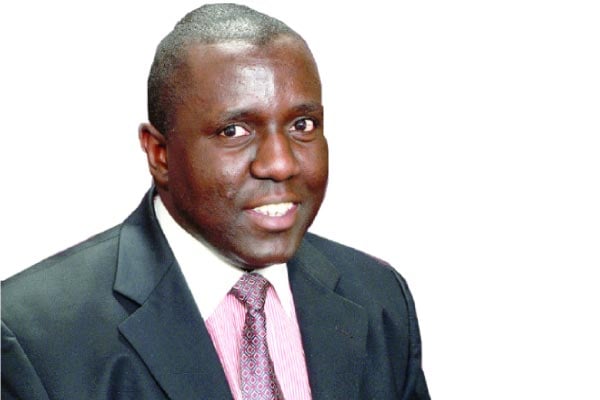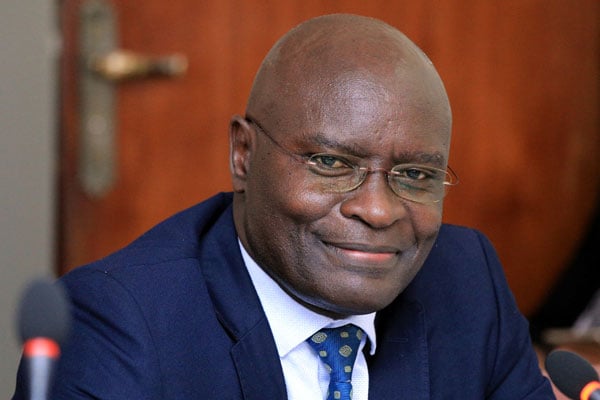
Author: Karoli Ssemogerere. PHOTO/FILE
The sole legislative outcome of the first regional sitting of Parliament in Gulu was a motion tabled by Richard Lumu DP-Mityana South and seconded by Michael Kakembo NUP Entebbe municipality to amend the Administration of Parliament Act and provide for election of the Leader of the Opposition in Parliament. Under the constitution, and the current enactment, the position of Leader of Opposition in Parliament belongs to the party with the largest number of members of Parliament in the opposition. Little further detail exists on how this power of appointment is exercised.
Interesting views have come out of this sole legislative move. The cynical, the creative, but even the sadistic one, that has the opposition preparing to form the opposition in the next Parliament more than one year before the next elections. As it stands, parliamentary representation in Uganda which has maintained the first past the post system since independence has continued to deteriorate. First is the growing disconnect between the results of the presidential election and the results of the parliamentary election.
With just two exceptions, in the past 25 years, (2001) and (2011), the winner of the presidency has won between 57 and 59 percent of the official votes tallied by the Electoral Commission. Even though 2001 and 2011 may be outliers, the winner did not garner 70 percent of the votes tallied as cast for a candidate in the presidential election.
In 2021, the most recent general election, at most this result has accounted for just 106 Members of Parliament or less than 20 percent of the elected Members of Parliament. If you count the results of all presidential candidates who ran to replace the incumbent in 2021, their total tally comes closer to 40 percent, which in Uganda’s unicameral legislature would be more than 200 Members of Parliament.
One would add a caveat, the elections still provide for independently elected Members of Parliament. The 1967 Constitution in its wisdom declared that for a person to be elected an independent member of Parliament they would have to declare which candidate they would support in the election of President which was limited to members of Parliament.
The distribution of independent members of Parliament has more of them affiliated with NRM than the opposition. In short, the plenary where debates are held is even more favourable than the rough and tumble presidential campaign. It is little wonder that is raised every now and again, why not use the same parliamentary election as a single election for both the president and parliament. Members of Parliament would elect the President, as they did in 1962, 1966 and 1967.
As DP President, Justice Minister Norbert Mao proposed that the size of parliament be reduced to 300 Members of Parliament. Perhaps what he missed is stating what would the formula be. In 2015, Luweero District Woman Representative Brenda Nabukenya, then a DP and now a NUP MP proposed that each district elect one single directly elected MP and one-woman MP.
With 146 districts at the time including Kampala, Parliament would park at 292 Members of Parliament. Nabukenya’s Parliament would reach Mao’s Parliament, if 8 additional seats were allocated as follows, one to the runner up in the presidential election, and if he enjoyed the second largest number of seats be designated Leader of Opposition and the rest of the seven seats allocated to parties according to their numeric strength in Parliament.
Such a formula would benefit disciplined parties like UPC who would have a chance to control their entire district delegations. UPC snatched two seats from NRM and FDC respectively, the only party to do so in the current Parliament. UPC’s parliamentary delegation would increase from 11 seats to at least 15 seats.
NUP which won most seats in Buganda would lose some seats but its 26 districts and two cities, Kampala and Masaka would produce a similar number of MPs that they control under the current gerrymandered system, a respectable tally of up to 54 seats.
With 70 seats out of a 300 seat Parliament, these two parties could nominate two out of the 7 seats, and have a Leader of Opposition increasing their tally to more than 70 seats but in a much smaller parliament. The other parties FDC, DP whose existence is now threadbare may capture another 25 seats. The smaller parties with a seat each could fill out 5 to 10 seats, if and if the current trends hold. Whom they represent is another story altogether!
Mr Ssemogerere is an Attorney-At-Law and an Advocate. [email protected]




